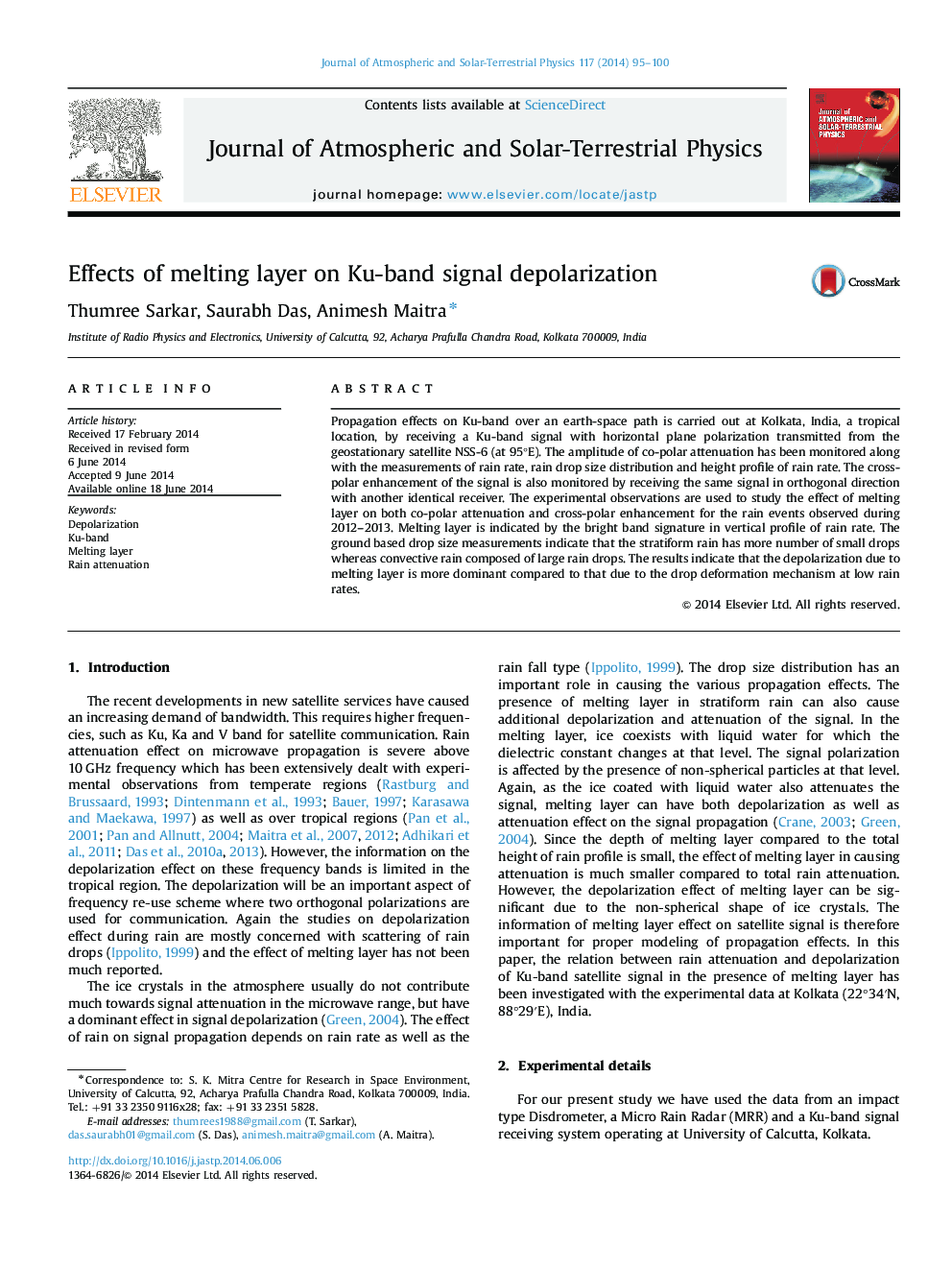| Article ID | Journal | Published Year | Pages | File Type |
|---|---|---|---|---|
| 1776623 | Journal of Atmospheric and Solar-Terrestrial Physics | 2014 | 6 Pages |
•Propagation effects on Ku-band signal is carried out at a tropical location.•Signal depolarization under different raining condition is assessed.•Melting layer causes significant depolarization in low rain.•Results are important for frequency re-use scheme.
Propagation effects on Ku-band over an earth-space path is carried out at Kolkata, India, a tropical location, by receiving a Ku-band signal with horizontal plane polarization transmitted from the geostationary satellite NSS-6 (at 95°E). The amplitude of co-polar attenuation has been monitored along with the measurements of rain rate, rain drop size distribution and height profile of rain rate. The cross-polar enhancement of the signal is also monitored by receiving the same signal in orthogonal direction with another identical receiver. The experimental observations are used to study the effect of melting layer on both co-polar attenuation and cross-polar enhancement for the rain events observed during 2012–2013. Melting layer is indicated by the bright band signature in vertical profile of rain rate. The ground based drop size measurements indicate that the stratiform rain has more number of small drops whereas convective rain composed of large rain drops. The results indicate that the depolarization due to melting layer is more dominant compared to that due to the drop deformation mechanism at low rain rates.
